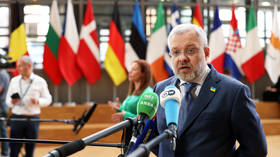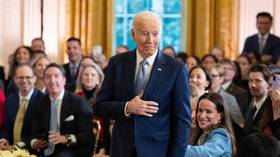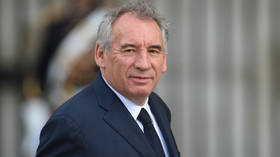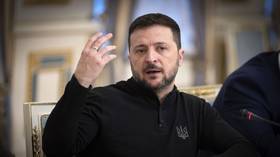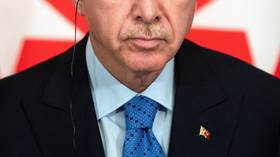Anti-Vaxxing hysteria comes to Russia — WHOOPING COUGH rates up 40%
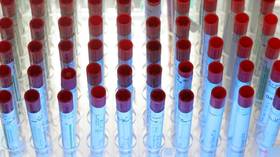
You may have thought anti-vax panic was mainly an American thing, but there are growing signs that rejecting science has now gone worldwide — and Russia is not immune.
In 2019, the number of whooping cough cases in the world's largest country increased by almost 40% — with the majority being in Moscow. The chief epidemiologist of the Ministry of Health, Nikolai Briko, believes one of the main reasons is the refusal of parents to vaccinate their children.
"When analyzing the statistics, it was found that, in the first year of life, less than 50% of children were vaccinated on time between 2014 and 2016. The required level — more than 95% — is not reached in some regions even by the age of two," he said. In addition to his role at the Ministry of Health, Briko is also an academic at the Russian Academy of Sciences.
In 2019, there were 14,406 cases of whooping cough in Russia — an almost 40% rise from 10,421 in 2018. According to data analyzed by Russian daily RBK, the number of instances has increased 2.7 times since 2017. In January 2020, 1,758 people developed whooping cough, most of them (89%) under 14 years old. Among the infected children, only a third have completed the full course of vaccination, and almost half haven't been vaccinated against the infection at all, according to Briko.
Whooping cough is a highly-contagious airborne bacterial infection, marked by a severe cough, known to be strong enough to induce vomiting and break ribs. It is especially dangerous for young children.
According to Marina Fedoseenko, an associate professor at the Faculty of Pediatrics at the Russian National Research Medical University, one of the main reasons for the increase in rates is the deficiency of the national preventive immunization calendar, which has no age of re-vaccination.
"Children who receive their last vaccination against whooping cough at one and a half years old, in accordance with the domestic vaccination schedule, lose their immunity by the age of six or seven. As a result, there is a wave of whooping cough among younger students."
In 2016, a survey called the 'State of Vaccine Confidence' discovered that there is a lower belief in vaccine safety in Europe than in the rest of the world. In Russia, 28% of those surveyed disagreed that they are safe. In 2019, the World Health Organization designated vaccine hesitancy as one of the top ten global threats.
In June 2019, President Vladimir Putin instructed the government to develop a strategy for immunization and highlighted the regular supply of immuno-biological drugs for vaccinations as a priority.
Also on rt.com Russophobia digest part 6: Evidence is optional as alleged anti-vaxx Russian bots go phishingLike this story? Share it with a friend!




